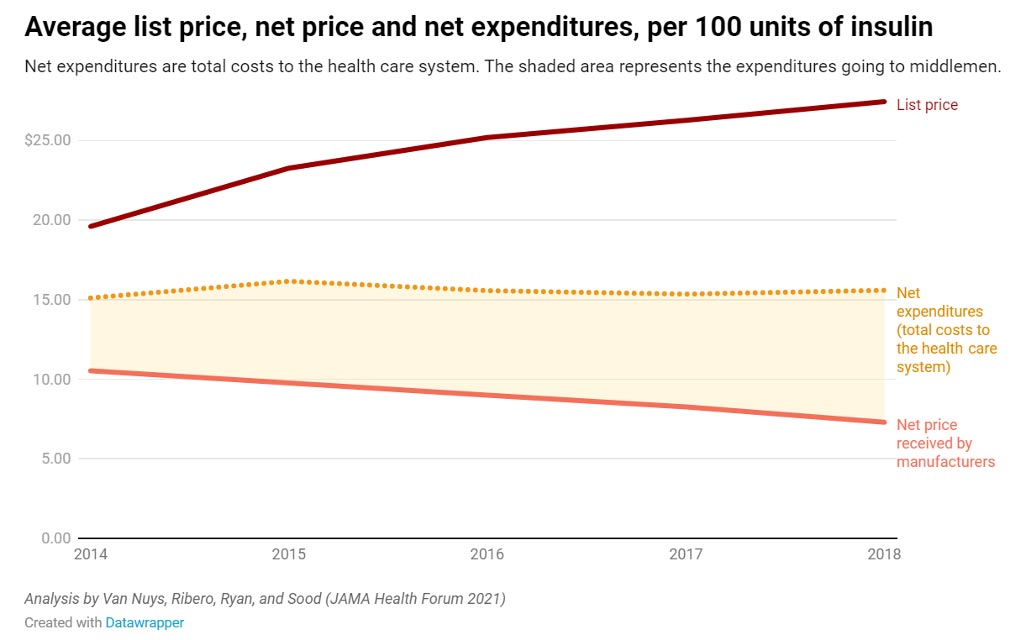The high price of insulin for diabetes sufferers has been one of the biggest flashpoints of the drug pricing debate for years. Clearly too many patients struggle with paying for this essential medicine. At the same time, manufacturers claim that the price that they have been receiving for insulin products has been falling.
A new study from the USC Schaeffer Center for Health Policy & Economics helps resolve this paradox. The researchers found that middlemen in the distribution process — wholesalers, pharmacies, pharmacy benefit managers (PBMs) and health plans “take home more than half — about 53% — of the net proceeds from the sale of insulin, up from 30% in 2014. Meanwhile the share going to manufacturers has decreased by a third.”
The chart below from the USC report tells the story.

The top line is the list price of insulin, which rose from 2014 to 2018. The bottom line is the net price to manufacturers, which fell over the same period. The middle line is net expenditures to the health care system, which is more or less flat.
This study is completely consistent with anecdotal evidence, suggesting that there’s a growing gap between the list price of insulin and the net proceeds going to manufacturers.
The researchers had to use 15 different data sources to put together their results. They report that:
…Of a hypothetical $100 spent on insulin, they find manufacturers accrued about $70 in 2014, falling to $47 in 2018. During this time, the share going to pharmacies increased from about $6 to $20, pharmacy benefit managers’ share increased from $6 to $14, and the share going to wholesalers increased from $5 to $8. Health plans saw their share decrease from $14 to $10 per $100 spent on insulin.
A single study is not conclusive, of course. But it does suggest that the insulin price problem has as much or more to do with the reimbursement and distribution system as it does with the prices charged by manufacturers. It also raises the need for the government to collect better price statistics that account for discounts and rebates.